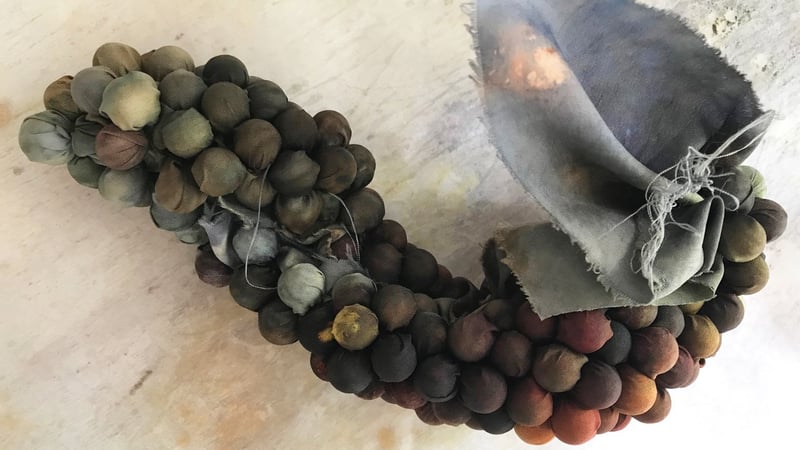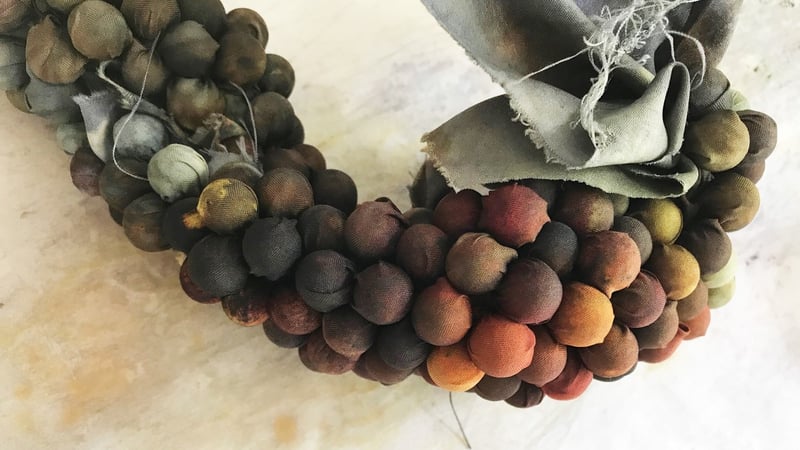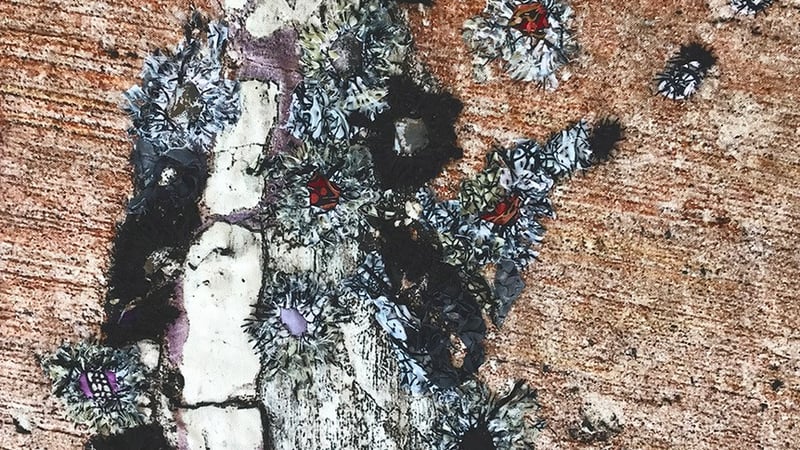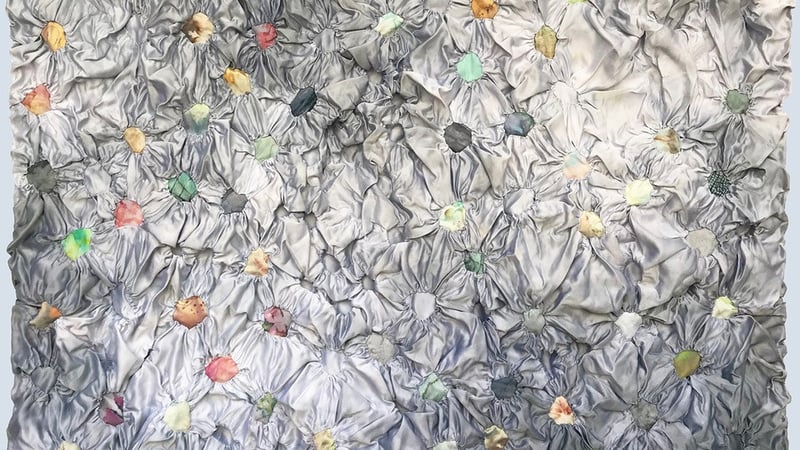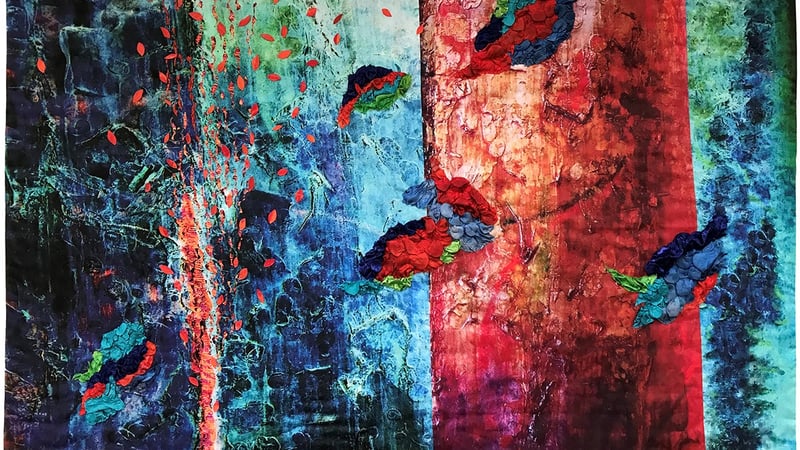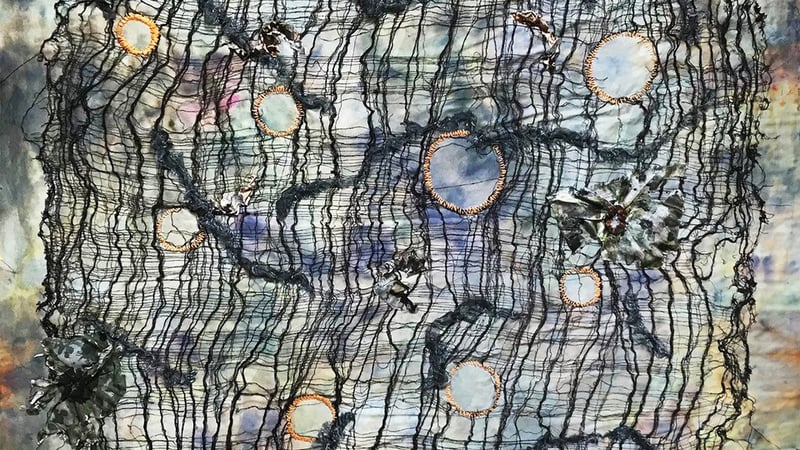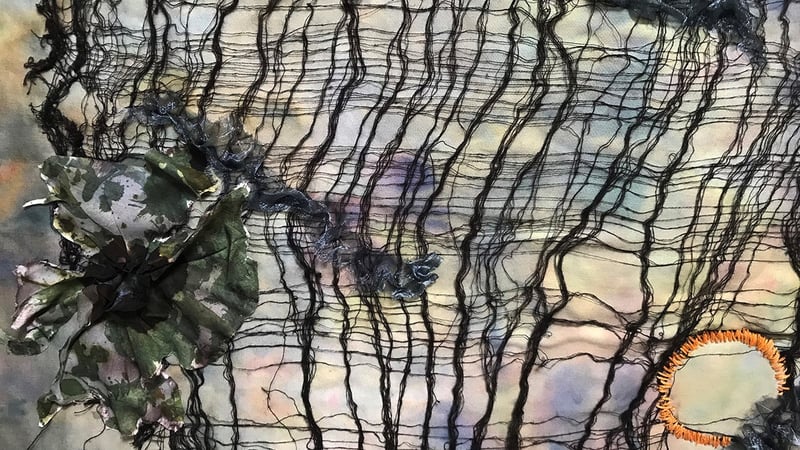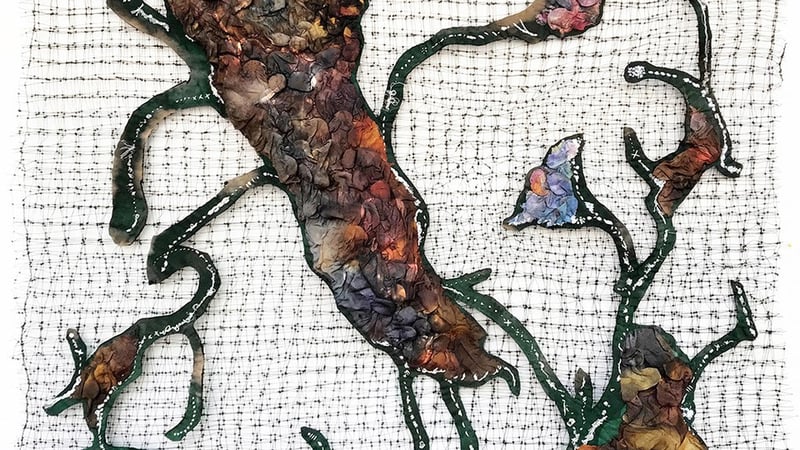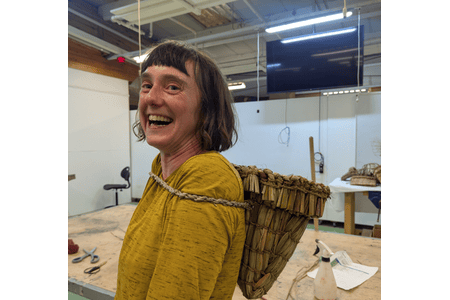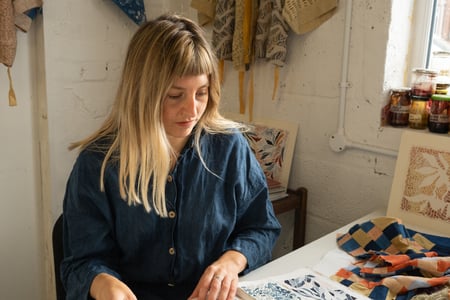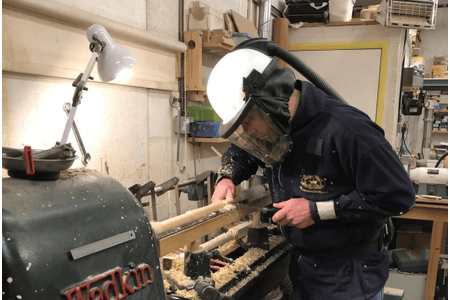"In the summer of 2018, I hopped on a plane from Los Angeles to Gatwick, jumped into an Uber and arrived at West Dean (my second visit), after a mere 13 hours. I had the great fun of taking a Manipulating Textiles workshop from Caroline Bartlett. As a mixed media textile artist, I wanted to expand my repertoire of materials and skills, and this workshop fit the bill precisely. I do a wide range of textile and mixed media techniques: hand stitching, dyeing, printing, painting, collaging, weaving, burning, quilting, foiling, etc., etc., always in the service of my ongoing work on topics of importance to me.
At the moment, I’m immersed in issues of Incarceration with a solo show of close to 50 pieces in a range of sizes, materials and techniques in the Los Angeles area in 2020.
What I learned from Caroline was invaluable to my subsequent work and many of the pieces in the Incarceration show utilize techniques she taught us. Using the high-end equipment the college makes available, she instructed us on dye sublimation and forming synthetic fabrics with heat, thereby allowing us to color and then make these fabrics permanently three-dimensional. VERY exciting.
I have incorporated some of these methods in my work. I do not, however have a heat press, nor a steamer. I wing it by using a dye pot and simply boiling the synthetic fabric that I tied as described here, assessing for the permanence of the form in the fabric every few minutes on small samples. About 20 minutes does the trick for the polyester I use. I’ve hand tied hundreds of heavy poker chips in two pieces and spherical ceramic pie weights in others testing the limits of how large a piece I could manage before the sheer weight became unwieldy (well over a meter, as it happens). [See Avocado Toast and des Iles Flottantes, below.]
The other two adaptations I have made since I do not have all the equipment are 1) use of a hot iron for forming small pieces and 2) immersion dyeing for transfer dyes (!). When working with limited amounts of fabric I have learned to press them with my Rowenta iron. First I wet the piece through, then I protect it with parchment paper top and bottom. It’s all about pressing hard for as long as it takes on the hottest temperature available. Usually this is about 5 minutes. I sit on a stool at the ironing board to avoid leg and back pain as this can go on for some time depending on how much formed fabric I need. As for coloring, I really took a big leap but I ended up using my more traditional dyeing skills to transfer the dyes designed for synthetics to the polyester. I get out a trusty dye pot, start some water boiling and add small amounts of the transfer dye little by little, constantly stirring and testing by dipping bits of the same fabric I will be coloring. I’ve mixed several brands and played around with the hues and I have gotten EXACTLY what I wanted. And yes, the sublimation process works as if it had been steamed. The silver gray for des Iles Flottantes is a luminous dream. [See below.]
This has turned out to be terribly exciting for me – permanent 3D surfaces in colors I can create, yea!! I was, however, concerned with using so much synthetic fabric so I asked Caroline at one point if using that instead of natural fibers was something she/we might have questions about. She didn’t really address that and I felt a bit churlish for asking. But the question stayed with me when I returned to my studio in Southern California. This is, of course, one of the many places on the planet which is currently experiencing drought conditions. Soon after, I was doing some dyeing of cottons and as I rinsed and rinsed I realized that the trade-off was that, even with low immersion dyeing, I was using quite a bit of water. I believe neither process is without its small drain on the environment and they are probably about equal when all is said and done. "

